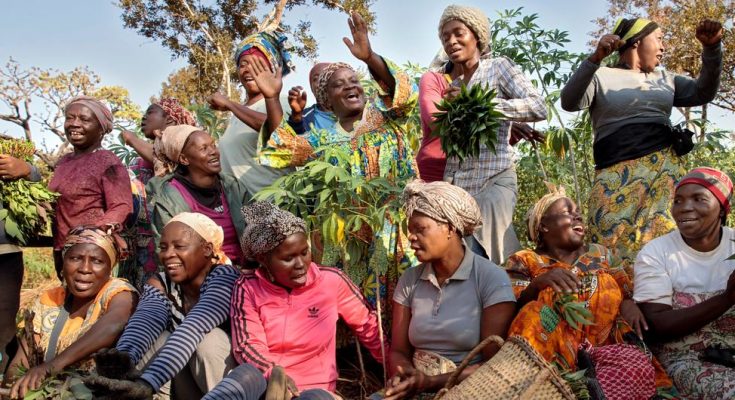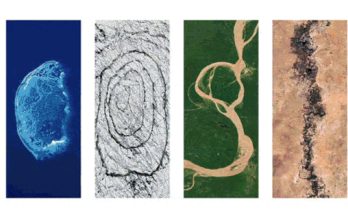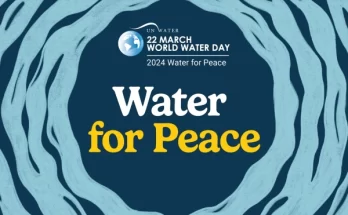Gender equality today for a sustainable tomorrow’ is the theme for the UN’s commemoration of International Women’s Day on Tuesday, celebrating the work of women and girls in fighting climate change and ending the COVID-19 pandemic.
Senior UN officials joined women activists, artists, politicians, and others from around the world, for an online event to mark the day, observed annually on 8 March.
While recognizing women’s leadership across all walks of life, UN Secretary-General António Guterres warned that “in too many areas, the clock on women’s rights is moving backward”, with COVID-19 a prime example.
‘The time is now’
The crisis has kept girls and women out of classrooms and workplaces, and contributed to rising poverty and violence, among other setbacks.
“We cannot emerge from the pandemic with the clock spinning backward on gender equality,” Mr. Guterres said in a video message played at the event. “We need to turn the clock forward on women’s rights. The time is now.”
Progress towards a more gender-equal world is being undermined by multiple interlocking and compounding crises, according to Sima Bahous, Executive Director at UN Women.
War must stop
“Currently, we are witnessing the horrifying situation in Ukraine where the impacts on women and girls, including the hundreds of thousands displaced, remind us: all conflicts, from Ukraine to Myanmar to Afghanistan, from the Sahel to Yemen, exact their highest price from women and girls,” she said. “The Secretary-General has been clear, War must stop.”
Meanwhile, climate change and environmental degradation are increasing insecurity, for individuals and countries, with women and girls disproportionately affected.
Ms. Bahous said the international community has the chance to put them at the center of planning and action and to integrate a gender perspective into global and national laws and policies.
Re-think and re-frame
“We have the opportunity to re-think, re-frame and re-allocate resources. We have the opportunity to benefit from the leadership of women and girl environmental defenders and climate activists to guide our planet’s conservation. We need indigenous women’s inter-generational knowledge, practices and skills,” she added.  © UNICEF/Sebastian x GilEnvironmental activists and founders of Youth for Climate Argentina.
© UNICEF/Sebastian x GilEnvironmental activists and founders of Youth for Climate Argentina.
International Women’s Day provides an opportunity to renew commitment to gender equality as the strong foundation for achieving the Sustainable Development Goals (SDGs), said the UN Deputy Secretary-General, Amina Mohammed.
“It is only with women and girls at the center of our efforts that we have our best chance to succeed in addressing our current, and pressing, global challenges – from the climate emergency to political divisions, to a sustainable recovery from this global pandemic.”
The President of the UN General Assembly, Abdulla Shahid, noted that a sustainable future is possible because governments have adopted frameworks such as the SDGs, the Paris Agreement on climate change, and the Sendai Framework for Disaster Risk Reduction.
Remove the barriers
Earlier, he had pointed out how despite their contributions, women remain “under-represented, under-supported, and unrecognized” in the social, economic, and political fields needed for sustainable recovery.
“We must strengthen mechanisms that provide pathways and support for ingenuity, ambition, and creativity, from all people who have the skill and the drive. And we must remove the barriers that prevent women from engaging,” said Mr. Shahid.
Next week, the UN Commission on the Status of Women (CSW) begins its annual session, which will also examine gender equality in climate change, environmental, and disaster risk reduction policies and programs.
“For a sustainable tomorrow, the gendered impacts of climate change must be confronted decisively and urgently,” said Commission Chair, Ambassador Mathu Joyini of South Africa.
She underlined commitment towards realizing “a robust set of agreed conclusions which will place women and girls firmly at the center of climate and sustainability solutions.”
Worth fighting for
American poet and activist, Amanda Gorman, was among the artists who contributed to the UN commemoration.
Now 24, she gained international acclaim for her poem ‘The Hill We Climb’, delivered at the inauguration of US President Joseph Biden in January last year.
In her poem ‘Earthrise’, played at the UN event, Ms. Gorman emphasizes how “Climate change is the single greatest challenge of our time”, and everyone has a role in protecting the planet.
“All of us bring light to exciting solutions never tried before/For it is our hope that implores us, at our uncompromising core/To keep rising up for an earth more than worth fighting for.”
On International Women’s Day Government of Canada announces project empowering survivors of human trafficking to regain independence
“The COVID-19 pandemic has created unprecedented and additional challenges for many of Canada’s most vulnerable citizens. It has underscored the social and economic inequalities that lead to human trafficking and other forms of exploitation, which disproportionately affect women and girls and marginalized individuals. These are heinous crimes that devastate the victims and survivors, their families, communities, and society as a whole.
To mark International Women’s Day, the Minister of Public Safety, the Honourable Marco Mendicino, met with the Salvation Army’s B.C. Division where the Propel Development Program For Survivors of Human Trafficking project is empowering survivors of human trafficking to reclaim their independence. Fourteen such projects have received a total of $5.12 million over four years through Public Safety Canada’s Program to Combat Serious and Organized Crime.
The Propel program is supported through almost $850,000 in federal funding over four years and offers support through two specialized streams. The first stream provides subsidized housing within the province for survivors of labor and/or sex trafficking in need of interim housing to support their transition to independent living. The second stream supports a development center for survivors of human trafficking aged 16 and older, to access specialized training and education. Survivors are further supported in their transition through access to opportunities like job prospects, volunteering, cultural connections, Indigenous mentorship, and the chance to establish long-term community ties.
While significant progress has been made to combat this appalling crime, there is still work to do as we move toward building a safer and more resilient Canada. That is why the Government of Canada will continue to collaborate with its partners to help ensure at-risk populations and victims and survivors of human trafficking have access to the critical supports and resources they need.”
“The work that organizations like the Salvation Army are doing has never been more critical. That is why I was pleased to highlight how federal funding is being used to empower survivors of human trafficking to regain their independence, reintegrate into their communities, and begin their healing and recovery journey. Through projects like this one, we are working together to build a safer and more inclusive Canada, free from exploitation and violence, ” Marco Mendicino, Minister of Public Safety said in a news release.
“Human trafficking sounds like a faraway problem that couldn’t happen in Canada. The reality is, it’s happening in our own backyard occurring at alarming rates, affecting thousands of Canadians each year. But thanks to the generosity and support of Public Safety Canada, and the leadership of Minister Mendicino, we have launched the Propel Survivor Development Centre; the only program of our kind in Canada. This funding and the program stand for Canada’s commitment to support those affected by human trafficking for long lasting change. This is an investment of hope, a resolute belief in resilience, and a declaration to raise the dignity of vulnerable people. Together in support, we boldly stand alongside Survivors to end human trafficking in Canada.”
– Marian De Martino, Salvation Army Illuminate Director said in a news release.
#UN; #Canada; #GenderEquality; #InternationalWomenDay





